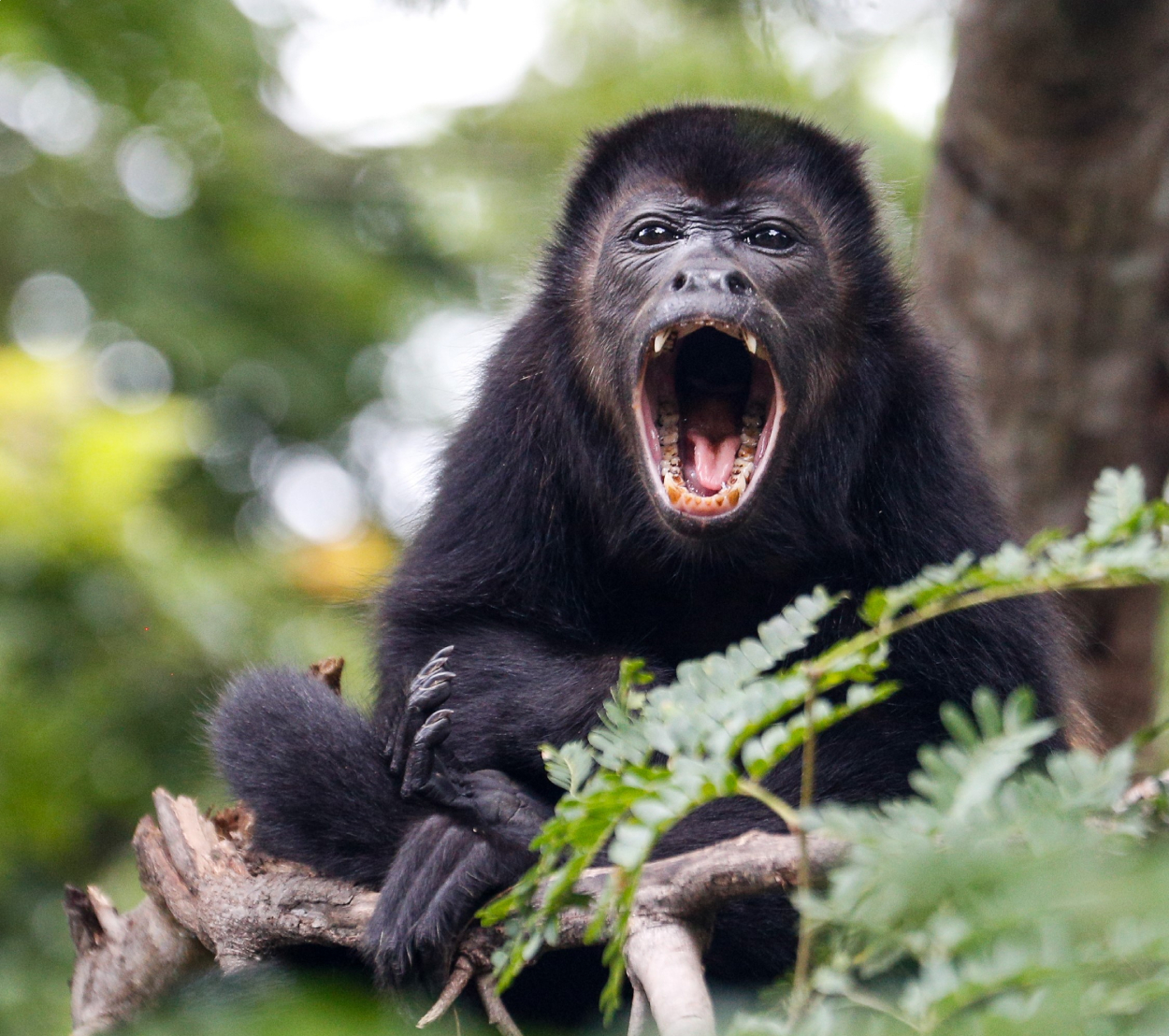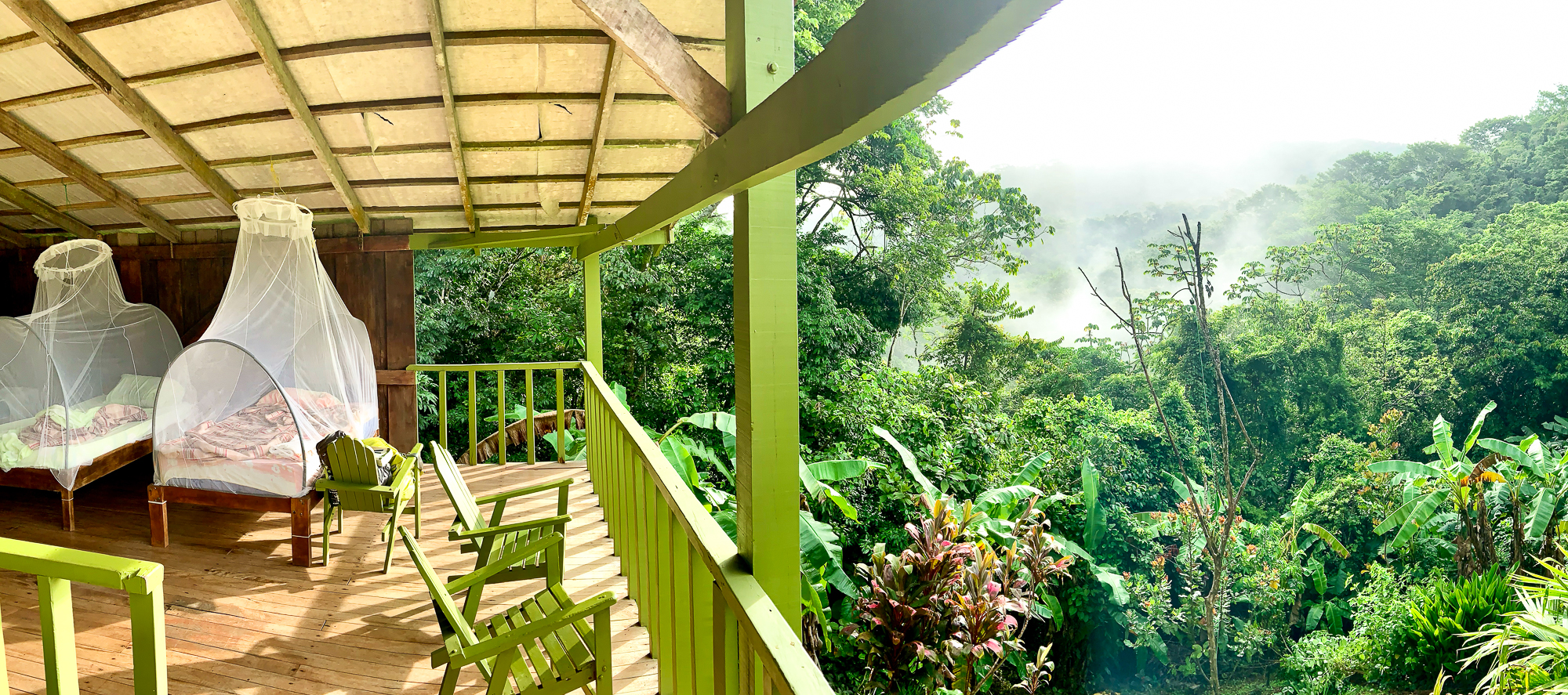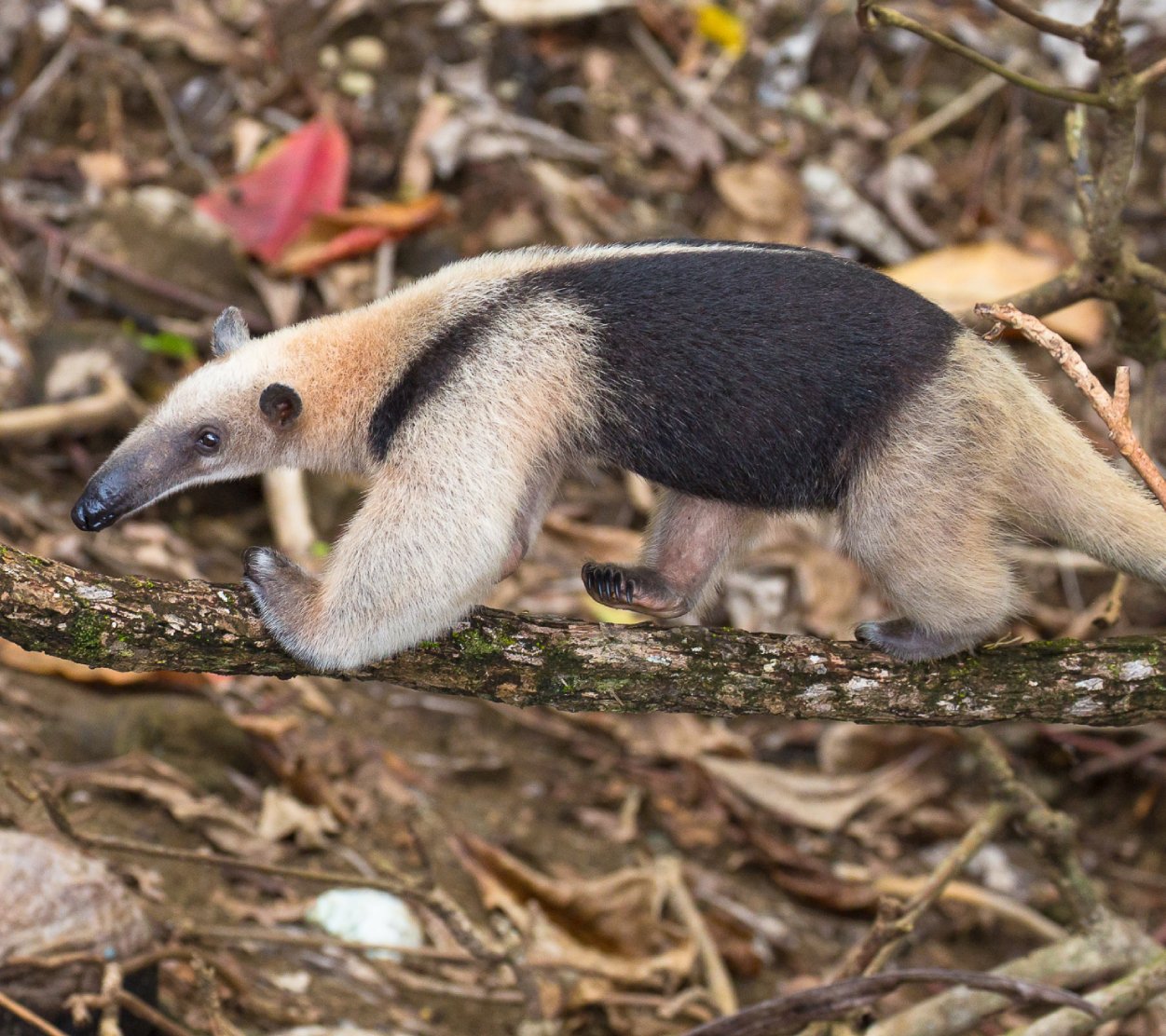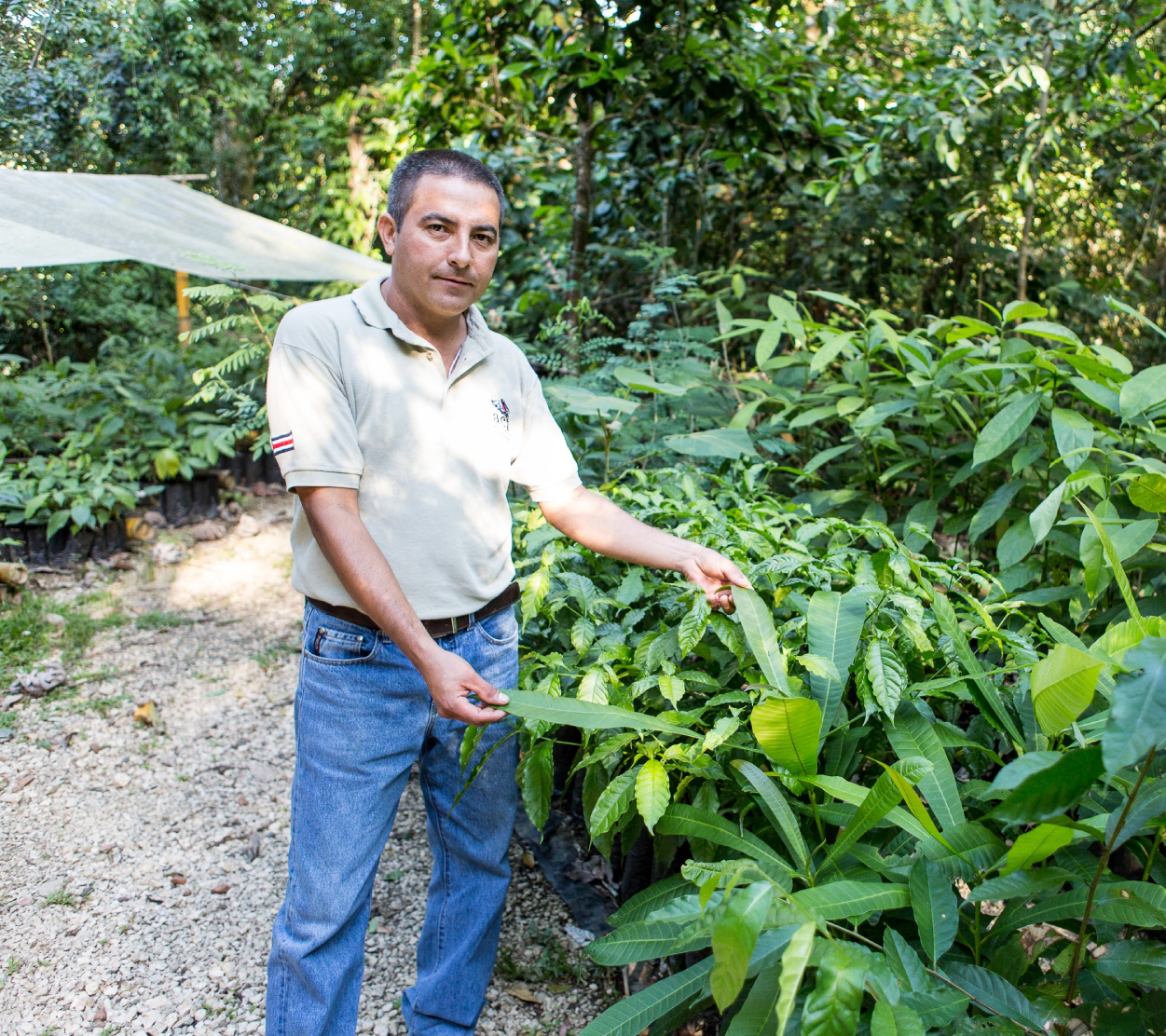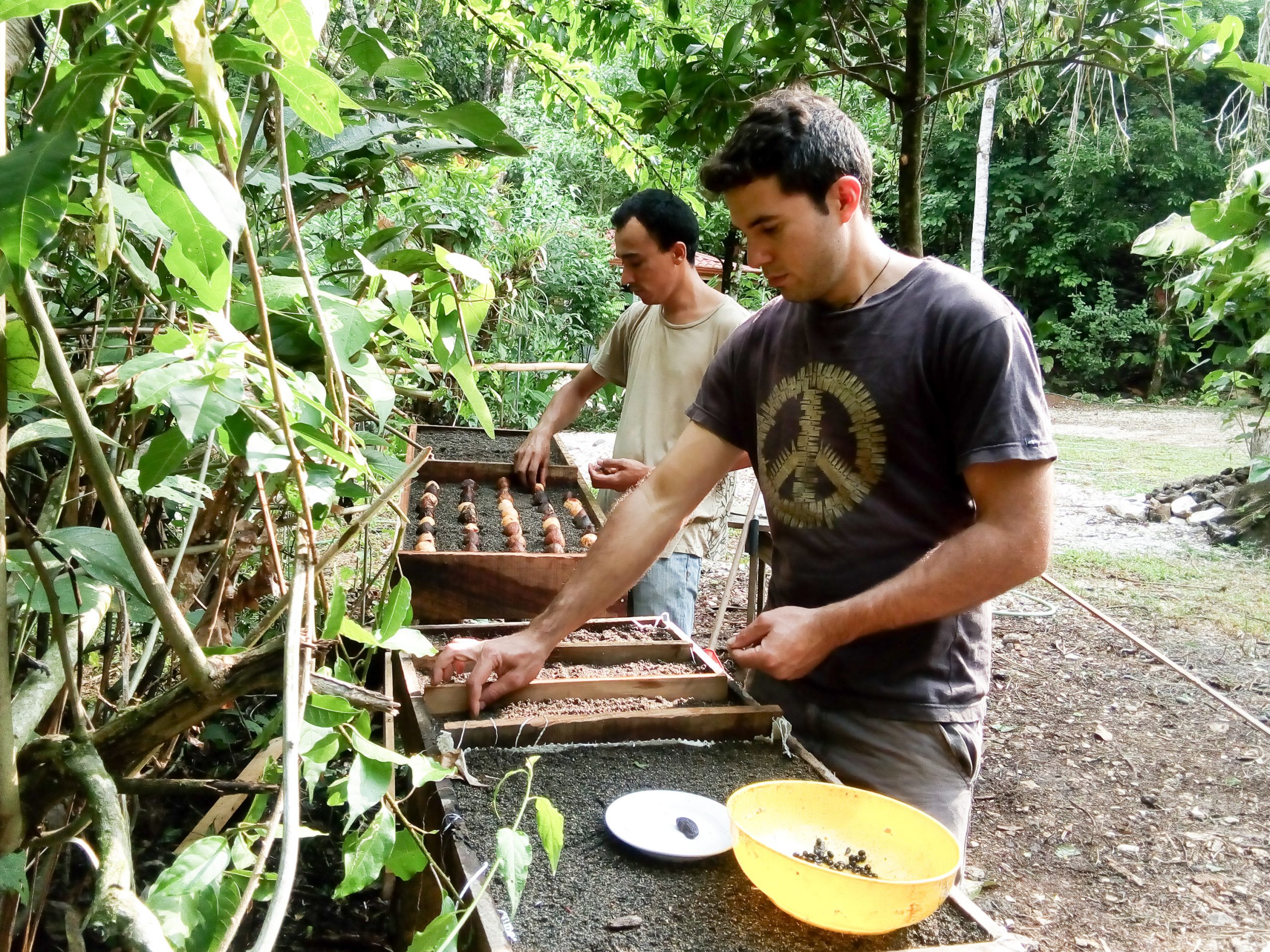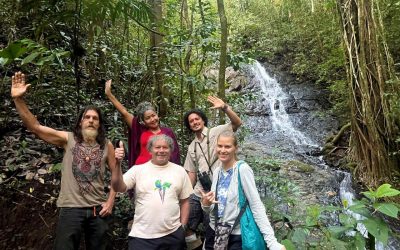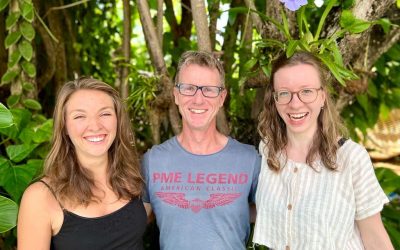MONTE ALTO
Deforestation leads to water shortages in the regionReforestation became necessary
Originally, large parts of the Pacific coast of Central America were covered by species-rich, tropical dry forests. But between the 1930s and 1980s they were almost completely cut down. This led to a loss of natural biodiversity and a drastic water shortage in the annual dry season, as the rivers dried up!
The population reacts
Only the protection of the remaining forest areas and reforestation in the headwaters of the Rio Nosara promised to reverse this development. In 1992, citizens in Hojancha founded the local organization Fundación Pro Reserva Forestal Monte Alto. Two years later, a 924-hectare, largely deforested basin was designated as an official protected area. By 2022, over 60 % of this area will have been reforested with natural mixed forest. The streams in the headwaters of the Rio Nosara now carry water all year round again, and the protected area is home to a steadily increasing diversity of species. A special aspect of this project is the combination of forest protection and small-scale agriculture (coffee and oranges), so that nature conservation and fruit plantations can coexist.
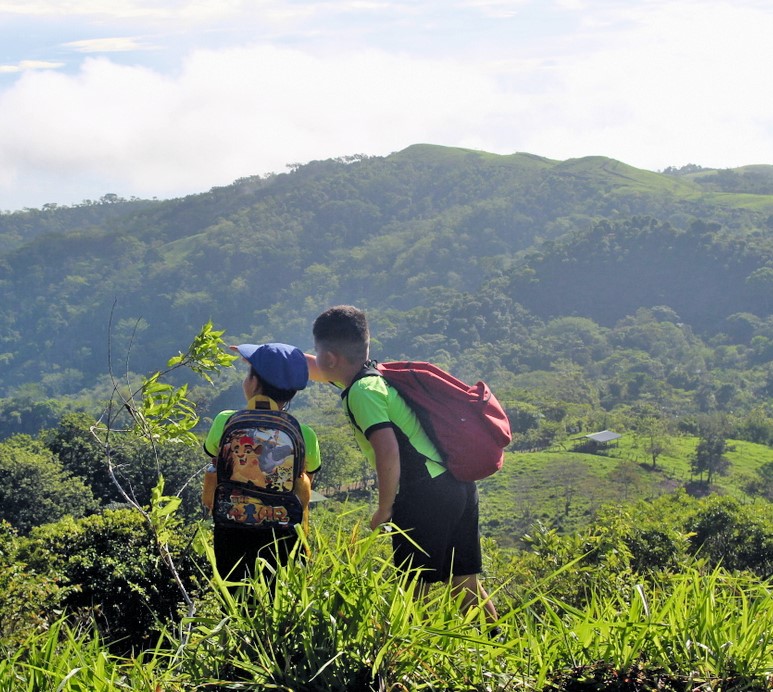
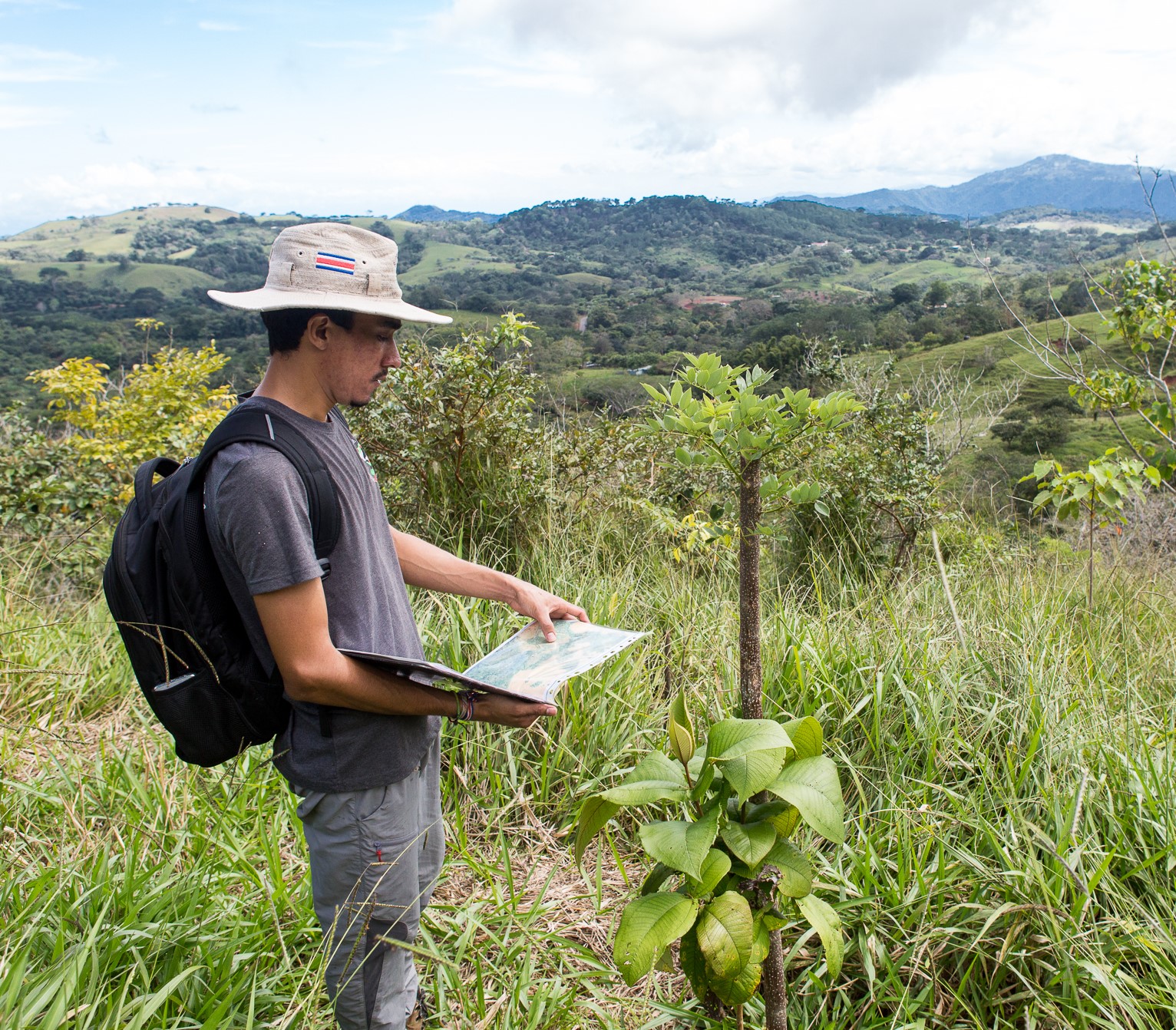
Reforestation of several pasture areas
Together with schoolchildren and the local population, Tropica Verde has reforested over 50 hectares of pastureland in the Monte Alto valley. Here we see forest engineer Víctor Esquivel cataloging and evaluating the growth of the species-rich plantations on Finca Alicia.
Local tree seeds
Tree seeds from over 30 tree species were collected in the forest, germinated and only planted out in the tree nursery after a further 15 months of care. In order for the trees to grow, it is necessary to cut back the aggressive pasture grass for a further 5 years.
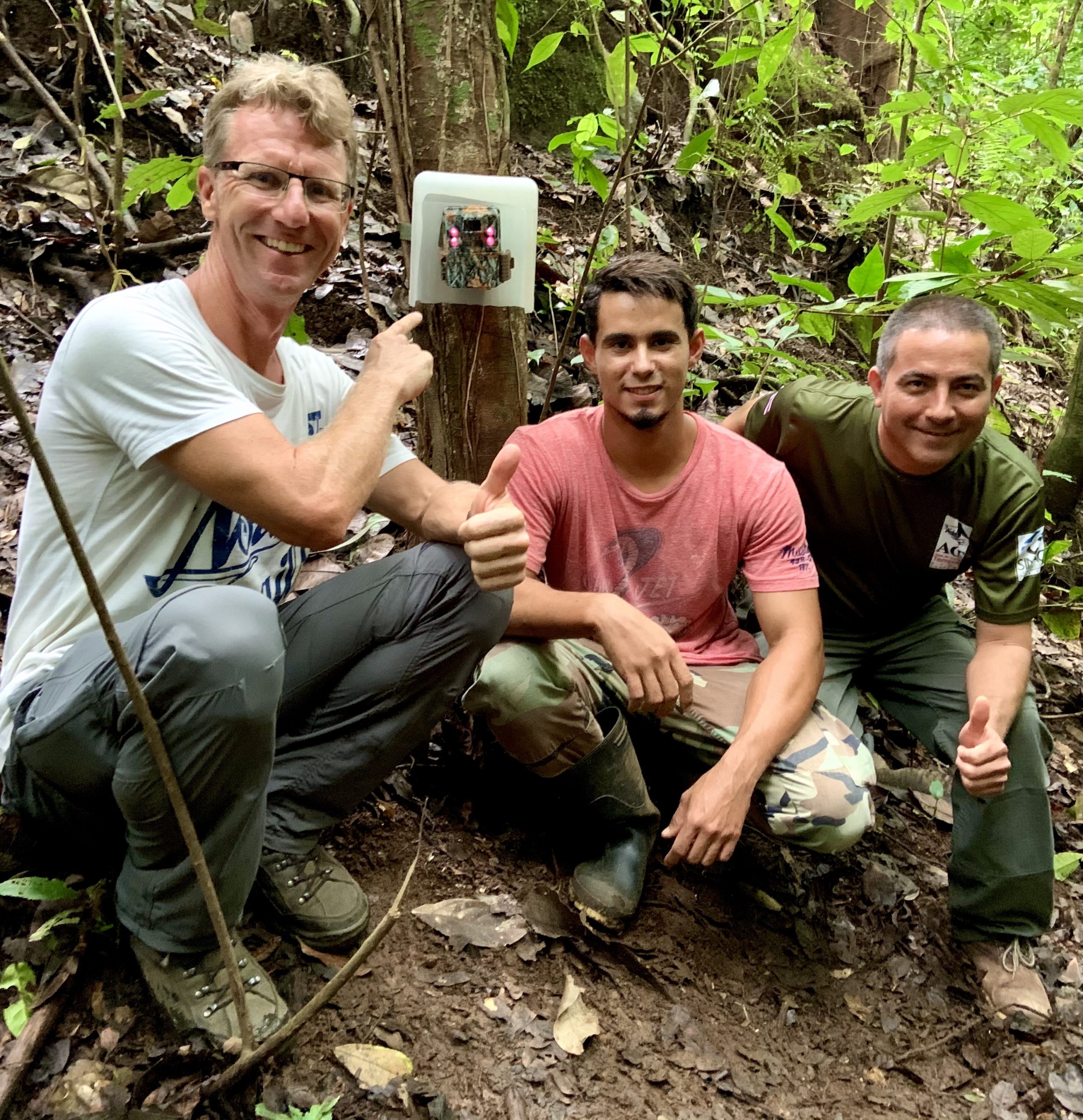
Camera traps
In Monte Alto, camera traps financed through crowdfunding have been used for several years to continuously document biodiversity.
Watch movie
Video recordings from camera traps in the Monte Alto area
WHAT DOES TROPICA VERDE DO?
- Tropica Verde has been a member of the foundation since March 1997. Since then, several pastures have been jointly acquired, which did not allow for natural reforestation due to the aggressive pasture grass. In order to restore species-rich forests, local tree seeds were collected with the locals, schoolchildren and students and grown in tree nurseries. The last reforestation project was established at Finca Alicia in 2018. Together with the local schools, over 30 different local tree species were planted. The labor-intensive reforestation with these young trees was successful: over 80 % of the 1,100 trees planted have grown well in 2022 and will contribute to the region’s biodiversity in the future.
- Tropica Verde supports environmental education through visits to the surrounding schools and excursions by pupils to the protected area. Every year, training courses on respectful interaction with nature, river clean-up campaigns, animal identification courses and much more are held. A training center in the Reserva also enables further training in the middle of nature. The principles of Education for Sustainable Development (ESD) are important to us.
- Since 2020, we have been supporting the scientific mapping of the area using camera traps and clay animal track beds, among other things, to document the increase in biodiversity.
News about this project
Review of the year 2023: How our projects developed
Cooperation, poaching and environmental education 2023 was a very intensive year in terms of our project work in Costa Rica. I've just returned from another 6 weeks in the country shortly before Christmas and have taken away many positive impressions from the...
Interview: What it was like as a volunteer in Costa Rica
Would you like to know more about volunteering at Tropica Verde? Then you’ve come to the right place! Our volunteers Bastienne and Freya talk about their experiences in Costa Rica
IGS Nordend Energy Saving Champion 2021 Hesse
What a success! IGS Nordend is the Hessian energy-saving champion. Congratulations from Tropica Verde! We would of course be particularly pleased if the 1st place in Hesse were to become a national victory. You can contribute now and only until June 8. How? By casting...
